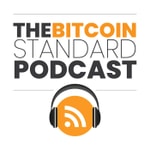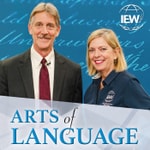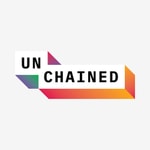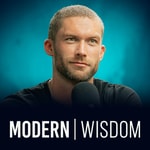The Moral Imagination – Détails, épisodes et analyse
Détails du podcast
Informations techniques et générales issues du flux RSS du podcast.
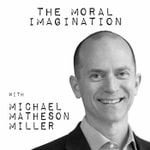
The Moral Imagination
Michael Matheson Miller
Fréquence : 1 épisode/36j. Total Éps: 60

www.themoralimagination.com
Classements récents
Dernières positions dans les classements Apple Podcasts et Spotify.
Apple Podcasts
🇬🇧 Grande Bretagne - philosophy
20/07/2025#78🇺🇸 États-Unis - philosophy
02/04/2025#94🇺🇸 États-Unis - philosophy
01/04/2025#98🇨🇦 Canada - philosophy
18/10/2024#79🇺🇸 États-Unis - philosophy
21/09/2024#84
Spotify
Aucun classement récent disponible
Liens partagés entre épisodes et podcasts
Liens présents dans les descriptions d'épisodes et autres podcasts les utilisant également.
See all- https://twitter.com/EduardHabsburg
5 partages
- https://twitter.com/titusfilm
1 partage
- https://twitter.com/riverswrites
1 partage
Qualité et score du flux RSS
Évaluation technique de la qualité et de la structure du flux RSS.
See allScore global : 64%
Historique des publications
Répartition mensuelle des publications d'épisodes au fil des années.
Episode 59: Catherine Pakaluk, Ph.D - A Life Marathon: On having a large family in a consumerist culture amidst declining marriage and birth rates
jeudi 25 juillet 2024 • Durée 02:25:36
In this episode of the Moral Imagination Podcast I speak with Catherine Pakaluk about her book Hannah’s Children: The Women Quietly Defying the Birth Dearth
Over the last 200 years, we have seen a decline in birth rates in the United States and abroad, especially in Western countries. Most European countries are no longer at replacement rates and face serious population decline. Reuters reported that Japan’s population will decline by a staggering 30% in the next fifty years.
In the United States, in the year 1800, the typical woman would have about 7 or 8 children. By 1900 that number was cut in half to 4. By 2000 the number cut in half again to about 2 children, which is just about replacement rate. The Wall Street Journal recently reported on the the record-low birthrate in the US, and how increasing numbers of people plan to have no children.
In the midst of declining marriages, childlessness, and low birthrates, Pakaluk studied the increasing minority of women in the Western world who have chosen to have five or more children — the top 5% of childbearing.
Her book is a mix of ethnography, sociology, and economics, and includes a critique of the dominant model of social and economic research.
One thing that stands out with many of the women she interviews is how at some point a shift took place in their attitude — from seeing children as a choice, like a consumer good among other choices, to a different attitude of receptivity and openness to having another child, and then another.
She talks about the many forces that promote small families — the cost of children, overpopulation propaganda, education, feminism, environmentalism, consumerism and more. But Pakaluk emphasizes that encouraging women to have more children cannot be addressed simply by implementing pro-family policies like some countries have tried to do. Good policy is not insignificant — for example in most US states parents who want to send their children to religious schools have to pay twice for school through tax and tuition. But she argues that the real problems go much deeper. They are religious, spiritual, and metaphysical: a vision of life that sees being as good, children as a blessing, and family as essential for a good life.
Pakaluk compares having a large family to running a marathon—except longer, harder, and more fulfilling. Government family policy would be like giving everyone a pair of good running shoes for the marathon. That could help, but it won’t get most people to run. There must be a deeper motivation, and this almost always comes from religious belief and the virtues of faith, hope, the goodness of being, and the value of generosity and sacrifice that come from it.
Themes and Topics we discuss include:
* Demographics and Population Decline
* Family policies
* Feminism
* Education
* Career vs Family and Children
* Conflicting Desires
* Difficulties and Advantages of a Large Family
* The Role of Religious Schools
* Community
* Plausibility Structures
* Consumerism
* Individualism
* Social Pressure
* Religious Freedom
* Fortitude, Patience
* Boys and Girls Sports
* Novak Djokovic and Kobe Bryant
* Voting Patterns
* Climate
* Creation and the Goodness of Being
* and more
Biography
Catherine Ruth Pakaluk (Ph.D, 2010) joined the faculty at the Busch School in the summer of 2016, and is the founder of the Social Research academic area, where she is an Associate Professor of Social Research and Economic Thought. Formerly, she was Assistant Professor and Chair of the Economics Department at Ave Maria University. Her primary areas of research include economics of education and religion, family studies and demography, Catholic social thought and political economy. Dr. Pakaluk is the 2015 recipient of the Acton Institute’s Novak Award, a prize given for “significant contributions to the study of the relationship between religion and economic liberty.”Pakaluk did her doctoral work at Harvard University under Caroline Hoxby, David Cutler, and 2016 Nobel-laureate Oliver Hart. Her dissertation, “Essays in Applied Microeconomics”, examined the relationship between religious ‘fit' and educational outcomes, the role of parental effort in observed peer effects and school quality, and theoretical aspects of the contraceptive revolution as regards twentieth century demographic trends. Beyond her formal training in economics, Dr. Pakaluk studied Catholic social thought under the mentorship of F. Russell Hittinger, and various aspects of Thomistic thought with Steven A. Long. She is a widely-admired writer and sought-after speaker on matters of culture, gender, social science, the vocation of women, and the work of Edith Stein. She lives in Maryland with her husband Michael Pakaluk and eight children.
Resources
Joseph Ratzinger: Homilies on Genesis
On the Jewish - Christian Idea of the Goodness of Being
Get full access to The Moral Imagination - Michael Matheson Miller at www.themoralimagination.com/subscribe
Ep. 58 William Easterly Ph.D. : Poverty, Technocracy, and the Tyranny of Experts
jeudi 25 avril 2024 • Durée 01:34:19
Photo Credit: Tyler Follon - Wingman Visuals
In this episode of the Moral Imagination Podcast, I speak with Professor William Easterly of New York University about his work in development economics, and the problems of technocracy and social engineering of the poor.
Easterly worked at the World Bank from 1985-2001 and began to be troubled by a number of things, including how aid is given without much concern about how it is distributed and managed thus subsidizing bad governance and harming the poor. We discuss Peter Bauer’s critique of how foreign aid politicizes development and delayed the development of business in Africa, and Bauer’s paradox of aid:
* The countries that need aid — aid will not be effective
* The countries where aid will be effective — do not need aid
But the key problem with the dominant model of development is not simply a lack of efficiency, but the failure to respect the rights and agency of poor people. Easterly explains that development projects often result in people being deprived of their property, political rights, and participation and consent in the very projects that are supposed to help them. He discussed the tendency to to trivialize problems in the developing world, and the lack of feedback and market tests in development policy. We discuss how the developing world can often become a a lab for experiments for technocrats and social engineers.
We also talk about Hayek’s Knowledge Problem, a response to Marianna Mazucatto idea of moonshots, and what I call “embedded'“ economics.
We discuss a number of issues including
* “The Debate that Never Happened” - Gunnar Myrdal vs. Friedrich Hayek on development economics
* Social Engineering
* Technocracy and the Hubris of the Technocrat
* Spontaneous Order
* Edmund Burke and Friedrich Hayek
* Soviet 5-year central planning as model for economic development
* Limited Horizons of Humanitarianism— a secular, hollowed out version of Christian love the focuses on material at the expense of personal agency.
* Lack of Accountability
* Material vs. Non-material Needs
* Materialist visions of the human person
* People have a right to consent to their own progress
* Harry Potter novels vs. Mosquito Nets
* Marianna Mazucatto’s ideas of Moonshots
* vs. accidental discovery
* vs opportunity costs
* vs failed social engineering projects
* and the complexity of economics and markets embedded in deep historical, cultural, norms, institutions, and religious foundations.
* How to think about foreign aid and public goods like healthcare, infrastructure, education
* Aid for emergencies vs. aid as answer to chronic poverty
* Institutions of Justice including clear title to land, access to justice in the courts, ability to participate in the formal economy, and free exchange.
* The impact of globalization on manufacturing in the US
* Trade-offs and economic volatility
* The moral rules that are needed for progress to beneficial
* Consent, Self-Determination, Moral Equality
* Attempts to develop Native Americans, US intervention in Philippines etc.
* Material progress is never enough to justify intervention
Biography
William Easterly is Professor of Economics at New York University and Co-director of the NYU Development Research Institute, which won the 2009 BBVA Frontiers of Knowledge in Development Cooperation Award. He is the author of three books: The Tyranny of Experts: Economists, Dictators, and the Forgotten Rights of the Poor (March 2014), The White Man’s Burden: Why the West’s Efforts to Aid the Rest Have Done So Much Ill and So Little Good (2006), which won the FA Hayek Award from the Manhattan Institute, and The Elusive Quest for Growth: Economists’ Adventures and Misadventures in the Tropics (2001).
He has published more than 60 peer-reviewed academic articles, and has written columns and reviews for the New York Times, Wall Street Journal, Financial Times, New York Review of Books, and Washington Post. He has served as Co-Editor of the Journal of Development Economics and as Director of the blog Aid Watch. He is a Research Associate of NBER, and senior fellow at the Bureau for Research and Economic Analysis of Development (BREAD). Foreign Policy Magazine named him among the Top 100 Global Public Intellectuals in 2008 and 2009, and Thomson Reuters listed him as one of Highly Cited Researchers of 2014. He is also the 11th most famous native of Bowling Green, Ohio.
Resources
Essay: Friedrich Hayek: “The Use of Knowledge in Society”
Uganda Farmer Story in New York Times
Recommended Reading
Tyranny of Experts William Easterly
The White Man's Burden: Why the West's Efforts to Aid the Rest Have Done So Much Ill and So Little GoodBuy on Amazon, William Easterly
The Elusive Quest for Growth: Economists' Adventures and Misadventures in the Tropics, Easterly, William R.
Target Africa: Ideological Neocolonialism in the Twenty-First Century
by Obianuju Ekeocha
Seeing Like a State, James C. Scott
Peter Bauer, Equality, The Third World, and Economic Delusion
Angus Deaton The Great Escape: Health, Wealth, and the Origins of Inequality
Get full access to The Moral Imagination - Michael Matheson Miller at www.themoralimagination.com/subscribe
Ep. 49 Flagg Taylor, Ph.D: The Parallel Polis
jeudi 22 décembre 2022 • Durée 01:43:46
In this episode I speak with Flagg Taylor about the life and writing of Vaclav Benda, and his idea of the parallel polis, decentralization, and creating space in society for culture, the family, charity, education, and human flourishing. Though he was writing under communist regimes, Benda’s writings are very relevant today in light democratic pressures to conformity, de-platforming, and especially as a new ontology of the person is being written into law — and dignity is used as weapon against religious and cultural liberty. Benda’s idea of the parallel polis was not a siege mentality, nor so much a reform existing structures that had ossified or were corrupted, but a call to build new, innovative, and better structures and social institutions that would activate people’s participation in civil, cultural, and commercial life, and give people a sense of purpose and agency. Examples today include decentralized technologies or classical education - which is not running away, but creating better alternatives to mediocre state run schools.
We discuss Benda’s ideas in the context of Czech communism and also in contemporary America, especially the overlap with Alexis de Tocqueville’s warnings about individualism, centralization, and soft-despotism. We examine his engagement with various thinkers including Roger Scruton and J.R.R. Tolkien, and talk about contemporary movements towards decentralization including The Network State by Balaji Srinivasan and its relation to the idea of a parallel polis. We discuss the need for social and commercial alternatives built on a rich understanding of the human person and the family including healthcare, mutual aid societies, banking, payment, insurance and more. Benda’s idea of the parallel polis demonstrates that the solution to totalitarianism and centralization is not more centralization or another totalitarianism, but de-centralization and humanization. We discuss a number of Benda essays including: The Parallel Polis, The Meaning Context Legacy of the Parallel Polis, The Family and Totalitarianism, A Critique of the Idea of a Christian State, and his personal reflections that illustrate the constant social pressure of living under communist totalitarianism.
Themes and Topics include
Albert Hirshman: Exit, Voice, and Loyalty
Peter Berger on Plausibility Structures
Vaclav Havel: Power of the Powerless
Greengrocers of the World Unite!
Aristotle’s Moral and Intellectual Virtues
Vaclav Havel Living in Truth
Benda focus on resisting the lies of totalitarianism by inhabiting a social spaces and plausibility structures that make living in truth possible.
MMM Lecture How to Build a Moral Imagination — new and better ways of live are actually plausible
Provide space for dissidents and their children who were excluded by the official social spaces
Balaji - The Network State - Network Union - Network Archipelago — cloud first, then land
-
Catholic Variation: Land - Cloud -Land
New Ontology of the Person
Totalitarian redefinition of biology and sociological reality
Dignity as a weapon against religious liberty
Testing the Limits in Communism vs Testing the Limits in Modern Democracy
De-platforming
Cancel Culture
Underground Seminars led by Roger Scruton
Roger Scruton and Jan Hus Foundation
Ortega y Gassett: The Spoiled Child of History
Second Culture
Charter 77 Essay at Foreign Policy Magazine
VONS Committee for the Defense of the Unjustly Prosecuted
Religious practice in Slovakia vs Czech Republic vs. Poland
Church Persecution by Communists in the 40s - 70s
Communist infiltration of Church and official Church collaboration with Communists 70s and 80s.
Critique of the Christian idea of a state
How politicalization of religion can lead to unbelief
Benda compared to contemporary Catholic integralists / post liberal thinkers
-
Pappin, Ahmari, Pecknold on Cultural Christianity and Politics
-
MMM commentary to this essay: Political Catholicism, Liberalism and the Myth of Neutrality
Secularism is not neutral
J.R.R Tolkien —Benda on the Lord of the Rings as as an analysis of totalitarianism
The Scouring of the Shire — See Jay Richards and Jonathan Witt The Hobbit Party link in Resources
The family is always a thorn to totalitarian states
Marriage and family as essential
The Family as the source of 3 fundamental gifts that a person can receive
-
Fruitful fellowship of love
-
Freedom
-
Dignity and unique role of the individual
Karol Wojtyla (John Paul II) and George Orwell on tenderness as a resistance to totalitarianism
Family as a space for freedom, failures, learning
How rebellion against parents is modern fashion that the totalitarian or centralizing state desires
Authority and Hierarchy
Hannah Arendt on Authority and Education (see link in resources)
BiographyDr. F. Flagg Taylor IV is an Associate Professor of government at Skidmore College serves on the Academic Council of the Victims of Communism Memorial Foundation. He holds a Ph.D. and an M.A. in political science from Fordham University and a B.A. from Kenyon College. Taylor’s specialty is in the history of political thought and American government, especially the question of executive power. He is the co-author of The Contested Removal Power, 1789-2010, author of numerous articles, and editor of The Great Lie: Classic and Recent Appraisals of Ideology and Totalitarianism and The Long Night of the Watchman: Essays by Václav Benda, 1977-1989.
Resources Flagg Taylor Website
The Enduring Interest Podcast on Apple Flagg Taylor Podcast at Podbean
MMM talk at Catholic Crypto Conference: Building a Parallel Polis: Social and Technological Decentralization
Peter Fiala
Flagg Taylor podcast interview on Hannah Arendt
Key QuotesFrom “The Meaning Context Legacy of the Parallel Polis”
There is, however, a fundamental difference between the natural resistance of life to totalitarianism and the deliberate expansion of the space in which the parallel polis can exist.
The former is a cluster of flowers that has grown into place accidentally sheltered from the killing winds of totalitarianism and easily destroyed when those winds change direction. The latter is a trench whose elimination depends strictly on a calculated move by the state power to destroy it.
Given the time and means available only a certain number of trenches can be eliminated. If, at the same time, the parallel polis is able to produce more such trenches than it loses ,a situation arises that is morally dangerous for the regime; it is a blow at the very heart of its power — that is, the possibility of intervening anywhere without limitation. The mission of the parallel polis is to constantly conquer new territory to make its parallelness constantly more substantial and more present. Benda p. 233
From “The Family and Totalitarianism”
I consider marriage and the family to be so essential that I am unwilling to accept the regular clichés about liberation from these obligations. So, in the Christian version as we know it, which for centuries dominated the western world, the family was, as well as many other good things, a visible embodiment of the three most fundamental gifts or dignity is that a person could receive…
Benda lists three gifts:
-
“Fruitful fellowship of love in which we are bound together with our neighbor without pardon by virtue simply of our closeness; not on the basis of merit rights and entitlements, but by virtue of mutual need and its affectionate reciprocation”
-
“Freedom and the ability to make permanent, eternal decisions … and acts of fidelity…that stand in radical defiance of our finitude”
-
“Dignity and the unique role of the individual
Get full access to The Moral Imagination - Michael Matheson Miller at www.themoralimagination.com/subscribe
Ep. 48 Jonathan Bi: Rene Girard - Social Pressure, True and False Desires, Sacrifice, and Belief
vendredi 16 décembre 2022 • Durée 01:59:23
In this episode I speak with Jonathan Bi about the ideas of Rene Girard, social pressure, authentic and false desires, victims and scapegoats, persecution, and Girardian theories on imitation and violence. We also discuss how Girard’s work sheds light on woke capitalism, right and left totalitarianism, Max Scheler, Hannah Arendt, Alexis de Tocqueville, and more. We discuss many themes including:
-
Christianity and Girard’s theory and the secularization and falsification of Christian values such as how humanitarianism and pacificism replace charity and peace and justice and more.
-
Evangelical Counsels and The Rule of St. Benedict as a response to metaphysical desire
-
Different views of the problem of evil: Hegel, Rousseau, Ratzinger, Solzhenitsyn, Girard
-
Human Perfectibility and Utopianism
-
Hope and Progress
-
Benedict XVI Spe Salvi
-
On the goodness of being in the Hebrew Bible, New Testament, and St. Augustine.
-
There is no technical solution to the problems of evil, suffering, of death
-
Embedded complexity, the dignity of labor, linear time, and how we live in a Christian civilization
-
Girard’s explanation of how scapegoating others for their behavior reveals that we too would be guilty — and why it is folly to think with confidence that we would not go along with the crowd if we lived under the Nazis or a slaveholding society
We begin a discussion on the atonement, Girard’s views and how to think about sacrifice — that we’ll have to finish in more detail
We also have a discussion about Christianity and Buddhism and religious belief. I hope you enjoy.
BiographyJonathan Bi is an entrepreneur working on a startup in FinTech and a philosopher focusing on Buddhist philosophy, Continental philosophy, and specifically the work of Rene Girard. Among his many projects he and David Perell have created a seven session video course on the ideas of Rene Girard. Originally from China, Jonathan also grew up in Canada, and studied computer science at Columbia.
Resources
Jonathan Bi and David Perell Lectures on Girard
On the Atonement — we just got into this briefly, but didn’t have enough time or preparation to address it sufficiently. I am going to have another episode on the atonement, and also on Girard and the atonement, but here are two links to Catholic resources view of the atonement
Get full access to The Moral Imagination - Michael Matheson Miller at www.themoralimagination.com/subscribe
Ep. 47 Rachel Ferguson, Ph.D: Exclusion & Opportunity - Black Liberation Through the Marketplace
vendredi 28 octobre 2022 • Durée 01:24:26
In this episode I speak with Rachel Ferguson about her book Black Liberation Through the Marketplace: Hope, Heartbreak, and the Promise of America, co-authored with Marcus Witcher. The book address issues of social justice, exclusion, opportunity, race and discrimination, classical liberalism, and the economic history of African Americans since the civil war.
Themes we discuss include
-
Racism and exclusion from justice, property, and rule of law
-
Classical Liberalism
-
Property Rights
-
Freedom of Contract
-
Education
-
History of Injustices post Civil War
-
Convict Leasing
-
Lynching
-
Jim Crow
-
Progressivism
-
Eugenics
-
Sterilization
-
Minimum Wage and its racist and eugenic underpinnings
-
Urban Renewal
-
Highways, transportation and the breakdown of African American and ethnic communities
-
Eminent Domain
-
African American towns and civil society
-
1619 Project and its errors
-
Family and the Sexual Revolution
-
Contraception
-
Entrepreneurship
-
Civil Society
-
Alexis de Tocqueville
-
Applied economics
-
Criminal Justice reform
-
Black Churches as a central part of community
-
Decentralization, Associational Life, and Welfare before the Welfare State
We discuss a number of writers including
-
Fredrick Douglass
-
Zora Neale Hurston
-
Booker T. Washington
-
Malcom X
-
Friedrich Hayek
-
Anthony Bradley
Rachel Ferguson, Ph.D. is an economic philosopher and Director of the Free Enterprise Center at Concordia University, Chicago. She has published in Discourse, The Journal of Markets and Morality, and the Library of Economics and Liberty. She has a Ph.D. in philosophy from St. Louis University. She is actively involved in community building and empowering marginalized entrepreneurs through LOVEtheLOU and Gateway to Flourishing
https://www.rachelfergusononline.com/
Resources
We mention a lot of books during the podcast. See below for links. Other things discussed include:
Rachel Ferguson Essay: Let’s do Philanthropy that Actually Works
Robert Woodson and the Woodson Center
Podcast with Anthony Bradley on Over-criminalization
Russell Hittinger on Technology and Contraception
Podcast with Mary Eberstadt on the Sexual Revolution
Get full access to The Moral Imagination - Michael Matheson Miller at www.themoralimagination.com/subscribe
Ep. 46 Bill Rivers: Last Summer Boys A Novel about Family, Honor, and the Power of Community
jeudi 20 octobre 2022 • Durée 01:11:21
peak with Bill Rivers about this novel, Last Summer Boys. The novel is about a rural Pennsylvania family and the adventures of three boys and a cousin and set in the tumultuous summer of 1968 with the Vietnam war, the assignations of Robert Kennedy and Martin Luther King.
“Summer 1968. When thirteen-year-old Jack Elliot overhears the barbershop men grousing, he devises a secret plan to keep his oldest brother, Pete, from the draft. If famous boys don’t go to war, he’ll make his brother their small town’s biggest celebrity. Jack gets unexpected help when his book-smart cousin Frankie arrives in their rural Pennsylvania town for the summer. Together, they convince Jack’s brothers to lead an expedition to find a fighter jet that crashed many winters ago―the perfect adventure to make Pete a hero.”
We discuss a number of themes including
-
Family
-
Justice
-
Honor
-
Civil Society
-
Principle of Subsidiarity
-
Anger
-
Tensions between economic progress and family and social stability
-
Tensions between rural and urban communities
-
Writing and story development
-
Moral imagination
-
1968 Cultural and Sexual Revolutions
-
Alexis de Tocqueville
-
Robert Nisbet
-
Louis L’amour
-
Property
-
Crony capitalism, eminent domain and more
Kirk Center for Cultural Renewal
Related Podcasts
Carlo Lancelotti on Augusto Del Noce —Shift from Christian Bourgeois to Pure Bourgeois
Get full access to The Moral Imagination - Michael Matheson Miller at www.themoralimagination.com/subscribe
Ep. 45 Paul McLaughlin PsyD, Mark R. McMinn PhD: Can Wisdom be Cultivated?
mercredi 21 septembre 2022 • Durée 02:00:17
In this episode I speak with two psychologists, Paul McLaughlin PsyD and Mark R. McMinn PhD, about their book A Time for Wisdom. The provide a unique perspective by examining wisdom from a psychological viewpoint.
They divide it into 4 categories, both to explain and provide a guide to develop wisdom in our lives.
Knowledge
-
Factual Knowledge,Know-How, self-knowledge and what they call “Enriched Knowledge,” the core of wisdom.
Detachment
-
Not only from material things, but from ideas and ideology. Detachment enables mental freedom, strengthens our capacity grieve, and is the bridge between knowledge and tranquility
Tranquility
-
Not apathy, but shifting our inner equilibrium, and helps us regulate our emotions
-
Tranquility helps us to cultivate awe, gratitude, peace, and what C.S. Lewis calls “reasonable emotions.”
Transcendence
-
Ability to go beyond ourselves and avoid the temptation to individualism
We discuss a number of themes including:
-
Is wisdom a state or a trait? Can it be developed? Is it domain dependent?
-
The tension between solidity and fluidity, between rigid thinking and relativism. How do we keep our minds open and not fall into what Benedict XVI has called the “dictatorship of relativism.”
-
The positive and negative parts of Jordan Peterson’s idea about exploring our dark side compared to mystical Catholic writers
-
Psychedelics as ersatz religion
-
You are not every thought you have
-
Anxiety
-
Obsessive Compulsive thoughts
-
Forgiveness and the goodness of being
-
Positive psychology
-
Narcisism
-
Mike Tyson’s theory that “everyone has a plan until they get punched in the face.”
-
How to think about increases anxiety and depression
-
My critique of the Individualism / Collectivism dichotomy
-
Tocqueville’s analysis of individualism and centralization
-
Can you measure wisdom?
-
Does wisdom increase over time?
-
Aristotle’s concept of phronesis
-
Gnosticism and Materialism as an obstacles to wisdom
-
Teleology — ends and purposes. Aristotle — the human person has an end and purpose to give you self direction
-
Transcendentals — goodness, truth, beauty
-
How suffering and sitting with people who suffer helps us grow in wisdom
-
The tension between holding onto your deeply held beliefs and yet remaining open to new ideas
-
Confirmation Bias vs. Epistemic Humility
Related Podcasts
James Madden Podcast, Embodied and Embedded Persons
James Poulos: Digital Politics and Spiritual War
Carlo Lancellotti: Augusto Del Noce and the shift to pure bourgeois
Jaron Lanier on Technology and Behavior Modification
Luke Burgis on Mimetic Desire, Rene Girard, and commercial society
Get full access to The Moral Imagination - Michael Matheson Miller at www.themoralimagination.com/subscribe
Ep. 44 Deion Kathawa: Technology, Religion, and Humanity in a Post-Human Age
vendredi 19 août 2022 • Durée 01:45:32
- digital technology
- social media
- biotech
- genetic engineering
- CRISPR
- post and trans-humanism
- transgenderism
- technology and power
- how tech effects the rich and the poor and middle class
We discuss the religious and philosophical sources of transhumanism from materialism to gnosticism, and human perfectibility and various thinkers including C.S. Lewis and Robert P. George. We also discuss the difference between transhumanist / transgender philosophy which sees the body as either malleable that needs perfection or the body and sexuality as something to escape from in contrast to the Christian view of the being and the body as good and part of who we are as embodied, embedded persons. Biography
Deion Kathawa is a law clerk at the Michigan Supreme court he has a law degree from the University Of Notre Dame and an undergraduate degree from the university of Michigan. He writes for numerous outlets including The American Mind, Public Discourse, and his Substack Sed Kontra
Get full access to The Moral Imagination - Michael Matheson Miller at www.themoralimagination.com/subscribe
Ep. 43: Orthodox Judaism, Leo Strauss, and Baruch Spinoza’s Critique of Religion
mardi 19 juillet 2022 • Durée 01:45:17
In this episode I speak with Jeffrey Bloom and Rabbi Jeremy Kagan about the book Spinoza, Strauss, and Sinai: Orthodox Judaism and Modern Questions of Faith published by Kodesh Press . The book is a collection of essays edited by Jeffrey Bloom, Alec Goldstein, and Gil Student.
Jeffrey Bloom grew up secular, Jewish family and the idea of actually practicing Orthodox Judaism was outside of the realm of possibility. He studied at University of Chicago where he took a class with Professor Leon Kass on Genesis. (see book link below) This was the first time that he took religion seriously. He notes that as a child of divorce— he wanted stronger family life, and he was attracted to Orthodox Judaism, but still questioned whether it was reasonable. This led him to read Strauss critique of Spinoza’s critique of religious belief. The Enlightenment philosopher, Baruch Spinoza argued that religious belief was irrational. But in his book, Spinoza’s Critique of Religion, Leo Strauss argued that while the enlightenment with Spinoza and his heirs claimed to refuted orthodox belief, they in fact did not. Strauss claimed that as long as orthodoxy is willing to make the concession that they can’t “know” and only “believe” the tenets of Judaism, then it is plausible and no weaker a position that rationalism because that is precisely what Spinoza is doing—when pressed, Enlightenment rationalism, like religion, rests on acts of “faith” in tenets that it cannot prove.
Strauss’ argument opened up questions about reason, belief, truth, access to reality and more, and what it did for Bloom was make orthodox Judaism rationally and intellectually plausible. As Rabbi Jeremy Kagan puts it, “carved out a space for the Torah” and religion belief and practice.
Yet Bloom had another question—Strauss opened the door to religious belief, but what did Orthodox Jews think about the arguments of both Spinoza critique of religion, and Strauss’ critique of Spinoza? Bloom gathered a group of Orthodox believers, Rabbis, computer scientists, philosophers, to address the question: Is the argument of Strauss any good? Are there better replies to the critique of religion than Strauss provides?
This book is relevant for many reasons— There is a sense that the Enlightenment and science and empiricism has proved that orthodox religion, Judaism and Christianity, is intellectually unserious and untenable, and many people hold this to be the case. Secular thinkers and atheists often critiques religion for its faith but they don’t realize they that rely on a host of non-empirical assumptions that uphold their beliefs. For example, why is reason is better than non - reason and how can one prove it in empirical means?
We discuss several essays including those by Jeffrey Bloom, Rabbi Kagan, Rabbi Shalom Carmy who argues that Strauss’ arguments are not compelling, and Moshe Koppel’s essay, “Why Revelation and not Orbiting Teapots” which makes the distinction between orthodox belief and superstition and more.
This is a complex discussion that addresses some of the big underlying questions about faith and science, reason and belief, different forms of knowledge, the value of religious observance, and some of the main themes of the Moral Imagination Podcast. I hope you enjoy.
Get full access to The Moral Imagination - Michael Matheson Miller at www.themoralimagination.com/subscribe
Ep. 42: Jeremy Tate: Whoever Owns the Test Owns the Curriculum: Classic Learning v. Industrial Model
vendredi 1 juillet 2022 • Durée 01:11:56
In this episode, I speak with Jeremy Tate, the founder of the Classic Learning Test about school testing, curriculum, and the classical versus industrial models of education. Jeremy argues that the current testing regime of the SAT and ACT have a tremendous influence on the curriculum taught in public and private schools. They promote a utilitarian vision of learning and drive students away from the classical Western tradition and serious reflection on what makes a good life. In response, Jeremy and his team developed the Classic Learning Test not only to be a better, more rigorous test, but to positively influence the curriculum toward more serious reading, and introduce students to the classic texts of the Western Tradition and those which shaped the founding of the United States, By ignoring these texts, the current testing and curricula regimes exclude students from engagement with the tradition. One of Tate’s colleagues noted that she could go from Kindergarten through a Ph.D. without reading Homer, Plato, or Shakespeare. This unfamiliarity with the tradition makes people unaware of history and complexity, unable to make distinctions, and thus more susceptible to propaganda and manipulation. It excludes the poor from opportunity and indoctrinates the elites into utilitarian and progressive ideas that they think are simply facts. As C.S. Lewis described, “10 years hence” we can find ourselves on the side of the philosophical controversy that we didn’t even know was up for debate.
We discuss a number of themes including
-
The revival of classical education
-
Whether you should go to college or not?
-
Education and virtue
-
Human Formation
-
C.S. Lewis's The Abolition of Man
-
Eustace Scrubb and the Chronicles of Narnia
-
Elite students focus on test scores rather than on learning
-
Scientists with no sense of history or complexity
-
The problems with critical thinking
-
The false dichotomy of Facts vs. Opinions
-
How moral and value judgments are reduced to opinions and more.
Biography
Jeremy Tate is the founder and CEO of the Classic Learning Test. Jeremy is also the host of the Anchored Podcast, CLT's top 2% global podcast that features discussions at the intersection of education and culture. Prior to founding CLT, Jeremy served as Director of College Counseling at Mount de Sales Academy in Catonsville, Maryland. He received his Bachelor of Science in Secondary Education from Louisiana State University and a Masters in Religious Studies from Reformed Theological Seminary. Jeremy and his wife Erin reside in Annapolis, Maryland with their six children. You can find Jeremy on Twitter @JeremyTate41.
ResourcesFor more on C.S. Lewis The Abolition of Man - See my interview with Michael Ward
For more on classical education see my interview with Heidi White and the importance of reading good books, my interview with Elizabeth Corey
Jeremy Tate: Not Another Test, The Right Test
Get full access to The Moral Imagination - Michael Matheson Miller at www.themoralimagination.com/subscribe
